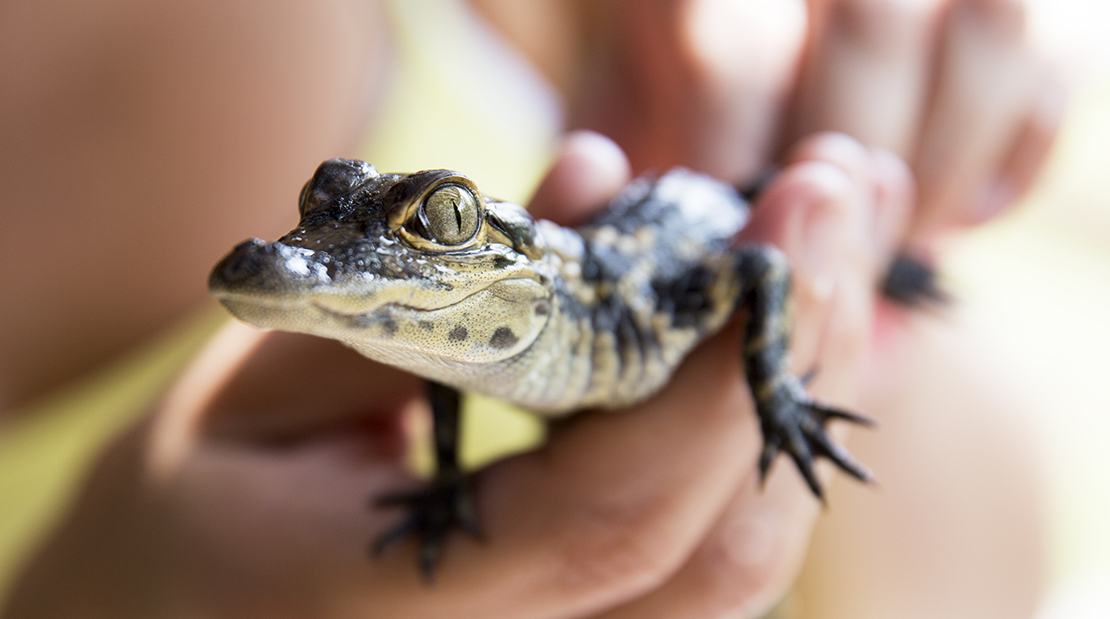
My Pet Gator!
We’re always up for a challenge here at CyFair animal hospital, and we’ve grown accustomed to caring for some pretty special exotic animals. From tigers to cows to goats, we’ve seen it all. While our typical clients don’t own exotic animals to the extent of a tiger, every once and a while, we hear about a rather untraditional pet-an alligator.
Reptiles can be cool pets to have. But of all the reptiles, unless you’re a gator expert, I’d encourage a second thought before keeping these wild animals as pets. Here’s why:
Temperament
The temperament of alligators can change rather quickly from one second to the next. An alligator that appears to be “relaxing” may in fact be waiting on an opportunity to eat its prey. Despite its reputation, alligators rarely attack humans unless provoked due to natural fear. The odds of surviving an unexpected attack, however, is not in your favor.
Diet
Though alligators prefer smaller prey that can be gulped in one bite, the animals will eat almost anything it comes across. This may be a positive for overall pet maintenance, but keep in mind that gators view small domesticated animals (dogs and cats) as food. Alligators have even been known to attack small children.
Interaction
Although gators don’t necessarily see humans as prey, they are not social animals, not even with each other! Alligators tend to roam alone, so if you’re looking for a cute and cuddly pet, and gators won’t fit the bill. They’re not affectionate creatures by nature, and can become aggressive if cornered or feels under attack.
Size
Alligators grow quickly and enormously. A one foot adolescent gator can grow to weigh up to 500 pounds and 14 feet! Creating a home habitat that mimics its environment is hard to do, and limited space is unfair to the animal.
Overall, gators are fascinating creatures that can be cool to study and learn more about. Here are some fun facts for those interested in the water giant:
- Like other reptiles, alligators regulate their body temperatures by leveraging external resources. When the animal is cold, it uses sun light to warn up, when hot, the gator may find shade.
- Gators are not usually social creatures and usually keep away from their peers.
- They can grow new teeth to replace those that are damaged or missing.
- Alligators hibernate! Bears are known for their hibernation rituals but some reptiles like turtles or alligators also hibernate during the cold months. Alligators dig and dwell in holes for their hibernation season.
- Alligators differ from crocodiles in many ways, including habitat. Crocodiles live in saltwater, while alligators thrive in freshwater.
Gators may have some impressive fun facts, but this doctor’s recommendation is to keep gator interactions to conservations or wild life parks under the careful supervision of skilled professionals.

